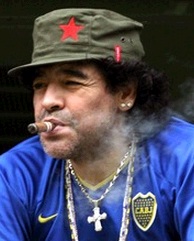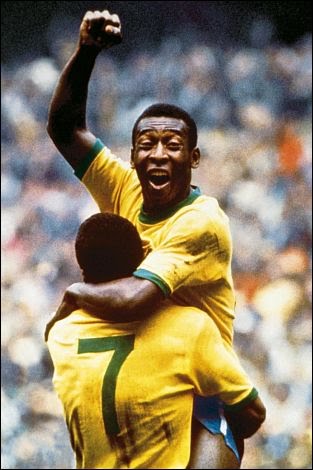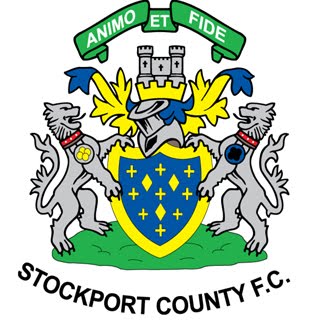This Month in Football History – March
We look back at the most memorable happenings in the month of March in the world of Football
1 March 1921 – Jules Rimet Becomes President of FIFA
Jules Rimet never kicked a ball, but he set the game on its way to the global phenomenon that we have on our hands today. Jules Rimet became the third President of FIFA on 1 March 1921. He was one of the founder members and visionaries when FIFA was formed to bring about a world football competition.
It was on his initiative, that the first FIFA World Cup was held in 1930. The Jules Rimet Trophy was named in his honour. Rimet kept the top post at FIFA till 1954, seeing the organisation grow from a small 12-member to a massive 85 countries, and in 1956 he was even nominated for the Nobel Prize.
6 March 1902 – Real Madrid Founded
Real’s origin goes back as early as 1897 when Football Club Sky was founded by the faculty and students of Madrid’s Institución Libre de Enseñanza. But FC Sky split in three years. One half formed Club Español de Madrid, which itself split in 1902 when club president Julian Palácios left to create Sociedad Madrid FC. King Alfonso XIII conferred royal favour on the club, changing its name to Real (Spanish for royal) Madrid Club de Fútbol in 1920.
Madrid’s win over Athletic Bilbao in the 1905 Copa del Rey final landed them with their first silverware.
It has since grown to become one of the most internationally acclaimed clubs, standing currently as the richest football club, in terms of annual revenue.
9 March 1908 – Another club is founded – Inter Milan
Some players belonging to the Milan Cricket and Football Club, or AC Milan as we know it today were not too pleased with their club’s restrictions on inducting foreign players. On 9 March 1908, they thus formed their own club which they named Internazionale Milano. Inter has since become one of Italy’s most decorated clubs, with 30 national trophies, 6 European and 3 international titles.
Known as the Nerazzurri for their black and blue striped home shirts, Inter won their first scudetto in 1910. They are the only team in Italy to remain in Serie A for their entire existence.
Disapproving Inter’s policy of recruiting foreign players, the Fascist government, in 1928, forced the club to play under the name “Ambrosiana.”
Inter’s greatest period came in the 1960s under manager Helenio Herrera, when they were nicknamed “La Grande Inter” for their successes.
11 March 1898 – AC Milan Kicks Off
English lace-maker Herbert Kilpin moved to Turin to work in the textile industry in Torino. He soon became the first Englishman to play professional football abroad. In 1897 Kilpin moved to Milan. Unlike most ideas that a group of drunk men have come up with in a pub, Kilpin and his friends actually did follow through on their plan and the Milan Cricket and Football Club was born. “We will wear red and black,” said Kilpin, “Red to recall the devil; black to invoke fear.”
On 11 March 1898, the club played its first ever football match, with six Brits in the line-up: Kilpin, Hoberlin Hoode, Kurt Lies, Samuel Richard Davies, Penvhyn Liewellyn Neville and David Allison, alongside Peter Cignaghi, Lorenzo Torretta, Guido Valerio, Antonio Dubini and Attilio Formenti. The match was played on a field to the north-east of the city where the Grand Central Station now stands.
The fledgling team won the match against local rivals Mediolanum, by either 2-0 or 3-0 (reports differ).
11 March 1951 – India Win Gold Medal at Asian Games
On 11 March 1951, hosts India won the gold medal in football at the first Asian Games in New Delhi, beating Iran 1-0 in the final. It was the national team’s first piece of major silverware and part of an overall strong performance at the Games by India, who finished with 51 medals, including 15 golds.
Although eleven countries participated in the Games, only six took part in the football tournament; including Japan, who had been barred from the 1948 Summer Olympics.
India cruised through their first two matches with ease, beating Indonesia followed by Afghanistan by the same score: 3-0. Iran started with a victory over Burma in the quarter-finals, but fought two closely-contested matches against Japan in the semi-finals. Japan beat Afghanistan in the third-place game, while India took the gold with their victory over Iran.
16 March 1938 – Bomb Strikes FC Barcelona Offices
On 16 March 1938, a bomb struck the offices of FC Barcelona during a raid by Italy’s Legionary Air Force. Catalonia had kept the Nationalist forces out for quite some time but a few months later they fell. Franco and his allies were bent on ravaging the symbols of Catalonian independence. Barça were forced to remove the Catalonian flag from their crest. Barça soon transformed into ‘More than a Club’ and a symbol of anti-Nationalist sentiment. And which club did Franco support? No points for guessing.
17 March 1991 – El Diego fails Drug Test
 On 17 March 1991, El Diego tested positive for cocaine after Napoli’s match against Bari. Maradona was then slapped with a 15-month ban, which brought to an end his seven-year spell in Naples.
On 17 March 1991, El Diego tested positive for cocaine after Napoli’s match against Bari. Maradona was then slapped with a 15-month ban, which brought to an end his seven-year spell in Naples.
Maradona had led Napoli to two Serie A titles, one Italian Cup, one UEFA Cup and an Italian Super Cup. But he also enjoyed the high life and made friends with members of the Giuliano family that ran the Camorra, Naples’ branch of the mafia.
Ever since his Barcelona days, Diego had used cocaine and Napoli bosses would later admit that if Maradona had not managed to stay clean in the days before a game, they would switch samples before testing was carried out.
Maradona spouted various conspiracy theories as he claimed that he had become a national anti-hero after knocking out Italy in 1990 World Cup at home.
26 March 2008 – Beckham’s Elusive Century
When Fabio Capello announced his first England squad in February 2008, there was no room for David Beckham. In the Football Association website, Capello was crisp: “I know there has been a lot of discussion about David Beckham. The reason that David is not in the squad is because he has not had any real match practice since playing in November.”
It immediately stirred up the media and pundits, the end of his career was being discussed everywhere. But not long after, Capello decided he had had enough of stringing Beckham and the nation along, and picked him for a friendly with France. Becks duly picked up his long-awaited 100th cap on this day at the Stade de France as England lost 1-0 to a Frank Ribery penalty.
27 March 2002 – Pelé’s Shirt Deal
The jersey worn b y Pelé in the 1970 World Cup final was sold at an auction for a record £157,750 on 27 March 2002. The bid was supposedly placed by an anonymous telephone bidder. It went on to smash the expected sale price that had been estimated by Christie’s auction house.
y Pelé in the 1970 World Cup final was sold at an auction for a record £157,750 on 27 March 2002. The bid was supposedly placed by an anonymous telephone bidder. It went on to smash the expected sale price that had been estimated by Christie’s auction house.
The shirt still had grass stains from the match, in which Pelé had scored the opening goal in Brazil’s 4-1 win over Italy. His uniform was auctioned by Italian defender Roberto Rosato, who acquired it by exchanging shirts with Pelé at the end of the match.
The sale beat the previous auction record of £91,750, paid for the shirt worn by England’s Geoff Hurst in the 1966 World Cup Final.
30 March 1946 – The Marathon Match
Doncaster Rovers and Stockport County met in a Division Three North Cup replay at Stockport’s Edgeley Park on 30 March 1946.
The teams had played to a draw at Doncaster which led to the replay. The hosts struck first with a penalty kick but Rovers foug ht back to take a 2-1 lead into the break. In the second half, the equalizer came in the 72nd minute. After 90 minutes, the teams were tied at 2-2 and neither side was able to score in another half hour of extra time.
ht back to take a 2-1 lead into the break. In the second half, the equalizer came in the 72nd minute. After 90 minutes, the teams were tied at 2-2 and neither side was able to score in another half hour of extra time.
The match continued into a ‘golden goal’ period – the first team to score would win the match. But neither team could find the back of the net. Several spectators even went home for tea, only to return and find the match still going. Stockport’s Les Crocker put the ball in the goal in the 173rd minute. Unfortunately, it was a foul and the referee disallowed the goal. Reportedly, some of the Doncaster players were upset at the call too as it meant they had to play on.
Finally, the match was called off close to 7:00 pm as it was growing dark (no floodlights at that time). The players were so tired by the end of the match that many of them dropped to the pitch at the whistle. The match lasted a total of 3 hours and 23 minutes (203 minutes), setting a world record in the process, which remains to this day.



